The long-term repercussions for Turkey’s domestic and foreign policy
One month later and Turkey’s coup d’état is still on the news. The reason why Turkey’s political regime attracted the attention of the world media can be found in Turkey’s role in world politics. Part of the G20¹ and traditional US ally, Turkey’s geostrategic location is of high importance in the regional balance due to its borders with Syria, Iran and Iraq. As for Europe, the recent refugee crisis has brought closer the European Union with Turkey.
Initially, this failed attempt appears as a conflict between the secular authorities and the armed forces. According to Albrecht, a coup d’état shows the involvement of the armed forces in domestic politics. For ambitious elites and officers, a coup can be the vehicle to oust the current government. This is why coups emerge more often in authoritarian regimes. In Turkish politics, the role of the coup plays a really controversial role. After Mustafa Kemal introduced the modernisation of the Turkish state, the military became the successor of the Κemalist state; an authoritarian reformist body and guardian of the democratic values.
In the past half-century, the military organised four more coups as a way to penetrate the public sector and protect the capitalist status quo. The 1960 coup aimed to restore the role of the military elite in domestic politics and preserve the social order. Over the next decades, the armed forces have expanded their internal security networks and retained the right to veto on any governmental policy decisions. In 1980, the coup was strictly related to the restoration of the business confidence and reinforced the interventionist role of the military on governmental control.
The recent coup was far from an isolated incident but more like deeply related to the current political turmoil in Turkey. With no doubt, the growing power of the Turkish president has led many people to believe that Erdoğan is becoming an authoritarian, which has caused the intervention of the military. Adding to that, Turkey also fears Syria jihadist spillover especially after the terrorist attack at the Ataturk Airport. Finally, the tension between Turkey and the West escalates, as the AKP leader blamed Western countries for supporting the outbreak of the coup.
The next section focuses on the episode night of July 15th and the life in the post-coup Turkey.
The episode night and the aftermath of the coup attempt
The coup of July 15th was crushed within 24 hours. Whilst on holidays, the Turkish president called the public to fight and suppress the coup via a video messaging application. Admittedly, the military forces attempted to seize power from Erdoğan and form a new government, but it is still unclear who was leading it. Despite having failed, the recent attempt was extensively planned and prepared. Therefore, it was not far from being a success (Osborne, 2016). With over 50,000 detainees, 300 civilians and military personnel dead, the country will need months or even years to build its trust and overcome internal divisions within the armed forces and its people.
Over the last month, life in Turkey has returned back to normal while the country in a three-month state of emergency; arrests of suspects continue, while death penalties were also discussed as a way to punish the plotters and cleanse the country from the followers of the Gülen movement. In financial terms, the Turkish economy remained calm after the failed coup attempt, but fears for long-term impact might hurt severely the domestic growth. In a climate of uncertainty, the national currency, lira, fell sharply and saw one of the steepest devaluations in its history. Additionally, there are fears for disruptions in tourism, foreign investment and trade (Barker, 2016).
Further analysis of who is Gülen and why Erdoğan blamed him for plotting the coup follows in the next section.
Why Erdoğan blamed Gülen for plotting the coup?
Before proceeding with the rivalry between the two men, it is worth examining Erdoğan’s rise to power. Having served as a president for more than a decade, Erdoğan comes from a religious background. Founder of his own pro-Islamist political party, Justice and Development Party (AKP), AKP was the first party in over half a century to be elected democratically for more than 10 consecutive years, which has marked a new era in Turkish politics and could be translated as a victory against the weakening role of the military (Ozkan, 2014)
In the Middle East, the rise of Islamist movements is based on the failure of the traditional parties; overgrowing corruption, poverty and inequality (Gidengil & Karakoç). In Turkey’s case, AKP followed a more western and liberal approach with a pro-EU stance beyond its conservative religious base. A very interesting approach on the AKP’s tactics is its denial over the recognition of a Kurdish issue – the largest ethnic minority in Turkey- and the conflict with the military elite. For some, the recent demand to amend the constitution for the sake of democracy was basically a way to minimize the influence of the military in politics.
By accusing Fethullah Gülen, a 75-year old Turkish cleric and influential preacher – self-exiled in the US since 1999 – Erdoğan requested from the US to extradite him back to Turkey. Not only the Turkish president accused him of plotting the coup but also condemned any foreign investments directed to Gülen’s movement, while the US asked for evidence before returning the latter to Turkey. On his part, Gülen refused any involvement as he is considered as a moderate Islamist imam who’s preaching for peace and tolerance. His teachings receive great support not only in Turkey but also worldwide. However, his name has been linked with terrorist ideologies in the past as a Wall Street Journal’s article revealed in one of his videos in 1999. According to a source, Erdoğan is mainly responsible for the infiltration of Gülenists in strategic posts within the military (Peker, 2016).
The two men were very close when back in 2003 Erdoğan rose to the power and needed the support of religious leaders, including Gülen, to exert control of various peripheries of the state against the secular military elite. Throughout the years, Erdoğan’s power increased and distanced himself from religious cycles. Their relationship was officially collapsed in 2013 when military officers and followers of Gülen pressed charges for corruption against Erdoğan’s political and business allies. According to Turkish officials, there are indeed followers of Gülen among the military officers that could have possibly infiltrated in the military forces with a view to controlling the state.
From a regional power to isolationism
In the aftermath of the failed coup, the problems that arise are not only limited to the divided Turkish society. Under AKP’s leadership, Turkey has aspired to become a regional power in the Middle East. In doing so, Turkey has been hesitating between two opposite directions; a pro-Western orientation and a critical stance against its western allies. A good example of this controversial practice is the Syrian refugee crisis; Turkey provided shelter to Syrians, while also kept opening its Syrian borders for jihadists (Oktav and Çelikaksoy, 2015).
In this context, the country tried to keep its diplomatic relations with the West and the Middle East on equal terms. However, Ankara failed to convey the democratic principles to other Muslim countries, as democracy was considered a bad fit for the Islamic awakening countries.
Decidedly, US-Turkey relations are already strained; the persistence for the extradition of the Turkish imam from the US to Turkey shows a lack of mutual trust. Additionally, the relations between Russia and Turkey have deteriorated after the downing of a Russian aircraft by the Turkish air forces near its borders with Syria in November. In the recent G20 summit in Hangzhou, China, the Russian leader Vladimir Putin met with Erdoğan to discuss further the restoration of their relations (Euractiv with Reuters).
What’s more, the worsening of the EU-Turkey relations is the result of the failed coup; Turkey’s need for funding and resources for the accommodation of Syrian refugees. In response to the reintroduction of the death penalty, which was abolished in 2004 to meet the EU accession criteria, EU leaders have clearly expressed their disapproval and hinted that such an attempt enlarges the gap between the two partners. It is worth noting that prior to coup’s outbreak, Ankara had opened a new chapter of the EU accession process. Finally, the recent EU-Turkey refugee deal² is treading on thin ice, as Ankara blamed the EU for not keeping its promise including the financial aid and the visa liberalization for Turkish citizens entering Europe. This September, the European Commission will examine whether Turkey has met its criteria to gain visa-free travel to Europe and receive the promised funding. If Turkey decides to withdraw from the agreement, then Europe will receive the next huge influx of migrants and refugees.
What are the long-term consequences?
Obviously, the power of the Turkish president has grown tremendously after the coup, as he sought the perfect excuse to eliminate his rivals and secure his post. The failed coup has revealed another important point; the hatred and the violence that has been cultivated in Turkey since Erdoğan’s rise on the power. Indeed, the latter has to confront many open fronts inside and outside his country. By all means, any illegal way to remove the power from a democratically elected government is condemned and unacceptable. However, Erdoğan should respect the Rule of Law³, otherwise, further chaos will follow (Freedom House, 2016a).
Following the recent press crackdown in the country, many anti-AKP media outlets were targeted for the expression of their opinion and faced penalties; among them, a pro-Kurdish newspaper, Özgür Gündem, was also shuttered for the same reasons. According to Freedom House, Turkey has been rated as Partly Free for 2016 and not free for press freedom. As a matter of fact, this seems to confirm the fears for an authoritarian regime established in Turkey under the presidency of Erdoğan.
Cornered by regional conflicts, the lack of trust towards the arm forces will have an immediate effect in its contribution in joint military operations against the Islamic State and the refugee crisis; the control of Turkish borders with Syria and the Kurdistan Workers’ Party – PKK (Osborne, 2016). In a nutshell, Ankara is already isolated and loses its allies starting with the US, EU, Russia, not to mention its former alliance with Israel.
The recent reshape of the Turkish military forces might weaken the country’s defensive capability which could lead to anarchy without excluding the possibility of another group of plotters (from a gang or a mob) to emerge and attempt a second coup. Many EU leaders also viewed this decision as an overreaction; it is estimated that only 1,5% of the military had participated in the failed coup (Peker et al, 2016). Finally, NATO and US officers are already considering the option of transferring nuclear weapons stationed in Incirlik⁴ to the US (Drew, 2016).
Photo: Chairman of the Joint Chiefs of Staff, The Republic of Turkey flag hangs on the side of a building as a show of solidarity following a July 15 Coup. (DoD Photo by Navy Petty Officer 2nd Class Dominique A. Pineiro) (2016). Source: (www.flickr.com) | (CC BY 2.0)
Footnotes
[1] G20:
A global cooperation forum on economic cooperation and decision-making consisted of 20 members
[2] EU-Turkey refugee deal:
Earlier this year, European leaders have agreed with Turkey to return migrants and asylum seekers to the latter. The agreement recalls that each application of a third-country national will be subject to the EU asylum rules (Directive 2013/32/EU). Frankly, the agreement received international criticism over its ethical problems, as it denies the right for international protection for refugees and asylum seekers, as well as discrimination against certain ethnic groups such as Afghans and Iraqis (Kingsley, 2016).
[3] The rule of law:
The rule of law is embedded in the Charter of the United Nations and outlines that all subjects including the State are accountable to laws and that even in a case of dispute, human rights should be protected.
[4] Incirlik:
A NATO base in Turkey, where there are allegedly stationed nuclear weapons that the North Atlantic Alliance would use in case of threat in the Middle East or war with Russia.
Bibliography
Alaaldin R. (2016) Aftermath of Turkey coup attempt will be bloody and repressive, The Guardian, 16th July, Available at: https://www.theguardian.com/world/2016/jul/16/aftermath-of-turkish-coup-attempt-will-be-bloody-and-repressive (Accessed 4th September 2016)
Albrecht H. (2015) The Myth of Coup-proofing: Risk and Instances of Military Coups d’état in the Middle East and North Africa, 1950-2013, Armed Forces & Society, 41 (4): 659-687, Available at: afs.sagepub.com (Accessed 31st August 2016)
Barker C. (2016) Turkey faces risks, ICIS Chemical Business, 4475 (1st August): 1, Available at: ebscohost.com (Accessed 2nd September 2016)
BBC (2016) Turkey’s coup attempt: What you need to know, BBC News, 17th July, Available at: http://www.bbc.co.uk/news/world-europe-36816045 (Accessed 29th August 2016)
Barrett D. (2016) Lawyers for Imam Wanted by Turkish Authorities Fear for their Client’s Life, The Wall Street Journal, 5th August, Available at: http://www.wsj.com/articles/lawyers-for-imam-wanted-by-turkish-authorities-fear-for-their-clients-life-1470418445 (Accessed 2nd September 2016)
Directive 2013/32/EU of the European Parliament and of the Council of 26 June 2013 on common procedures for granting and withdrawing international protection (recast), Official Journal of the European Union L180, 29.6.2013, p.60-95, Available at: http://eur-lex.europa.eu/legal-content/EN/TXT/PDF/?uri=CELEX:32013L0032&from=en (Accessed 28th March 2016)
Drew J. (2016) Turkey Coup Raises Questions About NATO’s B61 Nuke Posture, Aviation Week & Space Technology, 25th July: 1, Available at: ebscohost.com (Accessed 3rd September 2016)
Euractiv with agencies (2016a) Erdoğan says coup was planned ‘outside Turkey’, blames the West, 3rd August, Available at: http://www.euractiv.com/section/global-europe/news/Erdoğan-says-coup-was-planned-outside-turkey-blames-the-west/ (Accessed 2nd September 2016)
Euractiv with agencies (2016b) Erdoğan starts disputes over migrant deal, 26th July, Available at: http://www.euractiv.com/section/global-europe/news/Erdoğan-starts-dispute-over-migrant-deal/ (Accessed 1st September 2016)
Euractiv with agencies (2016c) Erdoğan vows to reintroduce death penalty ‘if Turks want’, 8th August, Available at: http://www.euractiv.com/section/global-europe/news/Erdoğan-vows-to-reintroduce-death-penalty-if-turks-want/ (Accessed 1st September 2016)
Euractiv with Reuters (2016) Putin to meet May, Merkel, Hollande and Erdoğan in China, 30th August, Available at: http://www.euractiv.com/section/uk-europe/news/putin-to-meet-may-merkel-hollande-and-Erdoğan-in-china/ (Accessed 2nd September 2016)
Finkel A. (2016) Turkey was already undergoing a slow-motion coup – by Erdoğan, not the army, The Guardian, 16th July, Available at: https://www.theguardian.com/commentisfree/2016/jul/16/turkey-coup-army-Erdoğan (Accessed 29th August 2016)
Fishwick C., Walsh J. and Guardian Readers, What’s it like living in Turkey one month after the failed coup? The Guardian, 15th August, Available at: https://www.theguardian.com/world/2016/aug/15/whats-it-like-living-in-turkey-one-month-after-the-failed-coup (Accessed 30th August 2016)
Freedom House (2016a) Democracy Now Best Protected by Respect for Rule of Law, News. 18th July, Available at: https://freedomhouse.org/article/turkey-democracy-now-best-protected-respect-rule-law (Accessed 3rd September 2016)
Freedom House (2016b) Turkey: Press Crackdown Targets Kurdish Nationalist Outlet, News, 16th August, Available at: https://freedomhouse.org/article/turkey-press-crackdown-targets-kurdish-nationalist-outlet (Accessed 30th August 2016)
Gidengil E. and Karakoç E. (2016) Which matters more in the electoral success of Islamist (successor) parties – religion or performance? The Turkish case, Party Politics, 22(3): 325-338, Available at: http://ppq.sagepub.com (Accessed 1st September 2016)
G20 (2015) About G20, Available at: http://g20.org.tr/about-g20/ (Accessed 29th August 2016)Jacoby T. (2003) For the People, of the People and By the Military: The Regime Structure of Modern Turkey, Political Studies, 2003 (51): 669-685, Available at: http://psx.sagepub.com/ (Accessed 31st August 2016)
Kingsley P. (2016) EU-Turkey refugee deal- Q&A, The Guardian, 8th March, Available at: https://www.theguardian.com/world/2016/mar/08/eu-turkey-refugee-deal-qa (Accessed 3rd September 2016)
Oktav Z. O. and Çelikaksoy A. (2015) The Syrian refugee challenge and Turkey’s quest for normative power in the Middle East, International Journal, 70 (3): 408-420, Available at: ijx.sagepub.com (Accessed 3rd September 2016)
Osborne T. (2016) Turkish Defense Modernization Uncertain After Coup Attempt, Aviation Week and Space Technology, 25th July: 1, Available at: ebscohost.com (Accessed 3rd September 2016)
Ozkan B. (2014) Turkey’s Choice: Is there a way out for Erdoğan? Political Insight, 5 (3) 34-37, Available: http://pli.sagepub.com (Accessed 31st August 2016)
Peker E. (2016) Turkey’s Recep Tayyip Erdoğan Turns on Former Brother-in-Arms Fethullah Gülen, The Wall Street Journal, 20th July, Available at: http://www.wsj.com/articles/turkeys-recep-tayyip-Erdoğan-turns-on-former-brother-in-arms-fethullah-Gülen-1469058504 (Accessed 3rd September 2016)
Peker E., Paletta D. and Bender R. (2016) Turkish Government Tightens Control Over Military, The Wall Street Journal, 28th July, Available at: http://www.wsj.com/articles/turkish-government-tightens-control-over-military-1469740628 (Accessed 3rd September 2016)
Rankin J. (2016) EU and Turkey restart talks over migrant pact, The Guardian, 25th August, Available at: https://www.theguardian.com/world/2016/aug/25/eu-and-turkey-restart-talks-over-migrant-pact (Accessed 3rd September 2016)
United Nations and the Rule of Law, What is the Rule of Law, Overview, Available at: https://www.un.org/ruleoflaw/what-is-the-rule-of-law/ (Accessed 7th September 2016)

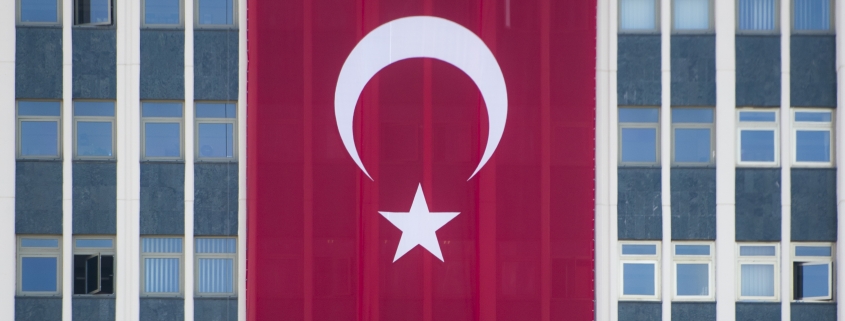
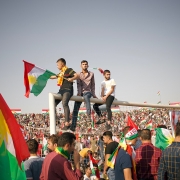
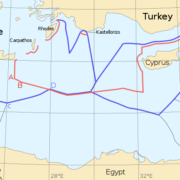
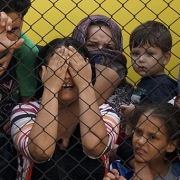
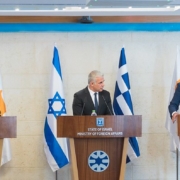
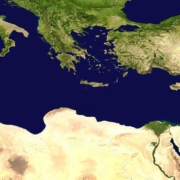



Leave a Reply
Want to join the discussion?Feel free to contribute!